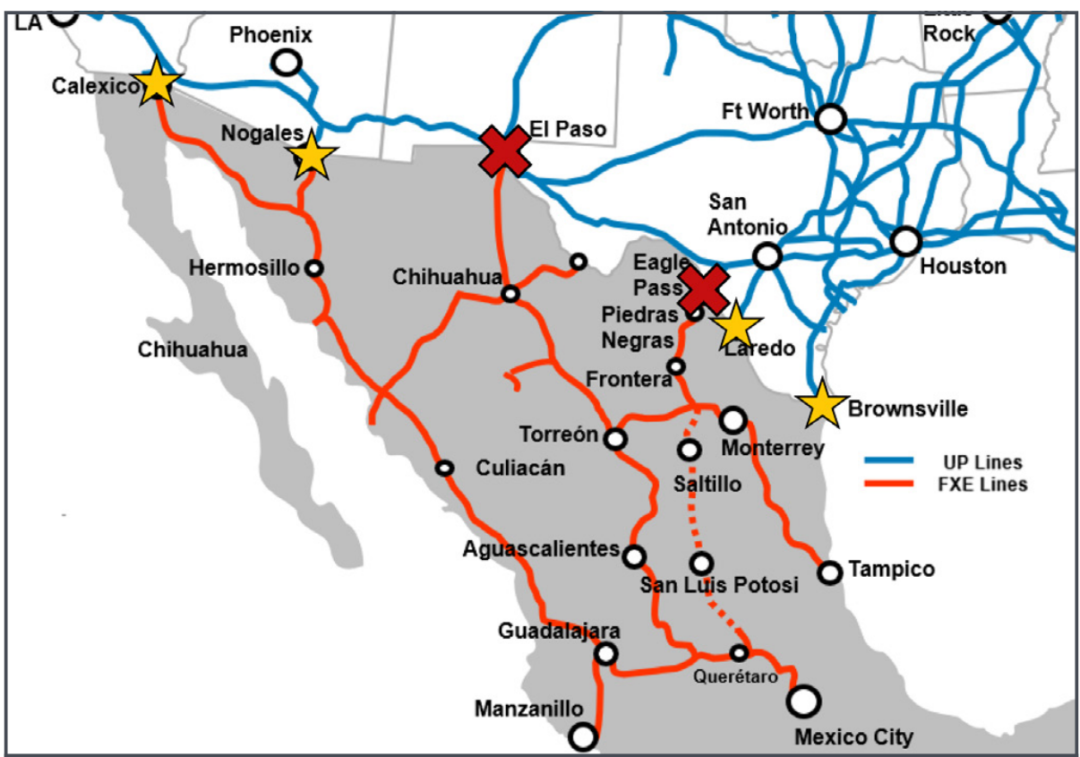Rail group cheers White House move to reopen Mexico border crossing
Customs agency had frozen trains at Mexico-Texas line in bid to stop smugglers moving migrants via trains

Under growing industry pressure, U.S. Customs and Border Protection (CBP) today said they would re-open two key rail lines at Eagle Pass and El Paso, Texas, that had been closed for five days as federal law enforcement agencies worked to stem a trend of smugglers moving migrants through Mexico via freight trains.
Freight sector groups had protested that policy loudly, saying that each day that rail shipments remained halted at the border caused increasing impacts on rail customers, communities, and the larger supply chain. In normal times, BNSF and Union Pacific railroad together run 24 trains across the two crossings per day, moving agricultural products, automotive parts, finished vehicles, chemicals, and consumer goods to customers on both sides of the border, the Association of American Railroads (AAR) said.
In addition, AAR disputed the law enforcement policy, saying that migrants are not actually using those rail crossings to enter the country in significant amounts. “Widely circulating video is not from these direct crossings. Railroads in partnership with CBP ensure that 100% of trains are screened and any unauthorized individuals are apprehended,” AAR said.
Likewise, the National Association of Manufacturers (NAM) criticized the border closure policy. “Manufacturers support CBP in their mission to protect national security, but stifling trade between the U.S. and Mexico is a direct threat to our economic competitiveness. It is not the solution to immigration challenges, but it does wrongly punish those who are not at fault,” NAM President and CEO Jay Timmons said in a release.
Following the change in policy, AAR applauded the White House’s move. “The Biden Administration made the right decision to protect our supply chain and keep goods moving between the U.S. and Mexico,” AAR President and CEO Ian Jefferies said in a release. “In the face of the unprecedented humanitarian crisis, CBP has been working under exceptionally difficult circumstances, but these ill-advised closures were a blunt force tool that did nothing to bolster law enforcement capacity. As CBP continues their work to address this crisis, railroads strongly encourage the agency to abandon this tactic moving forward in favor of approaches that are capable of meaningfully enhancing its response capabilities.
In a statement, Union Pacific also cheered the reopened border. “Union Pacific is relieved the border crossings at Eagle Pass and El Paso, Texas, will reopen,” the company said. “These crossings are critical gateways for international commerce, and the closures had real-world impacts for families, businesses and our customers on both sides of the border. We will restore normal operations as quickly as possible as we work through the five-day backlog of shipments holding to cross the border.”
Related Articles

Copyright ©2024. All Rights ReservedDesign, CMS, Hosting & Web Development :: ePublishing